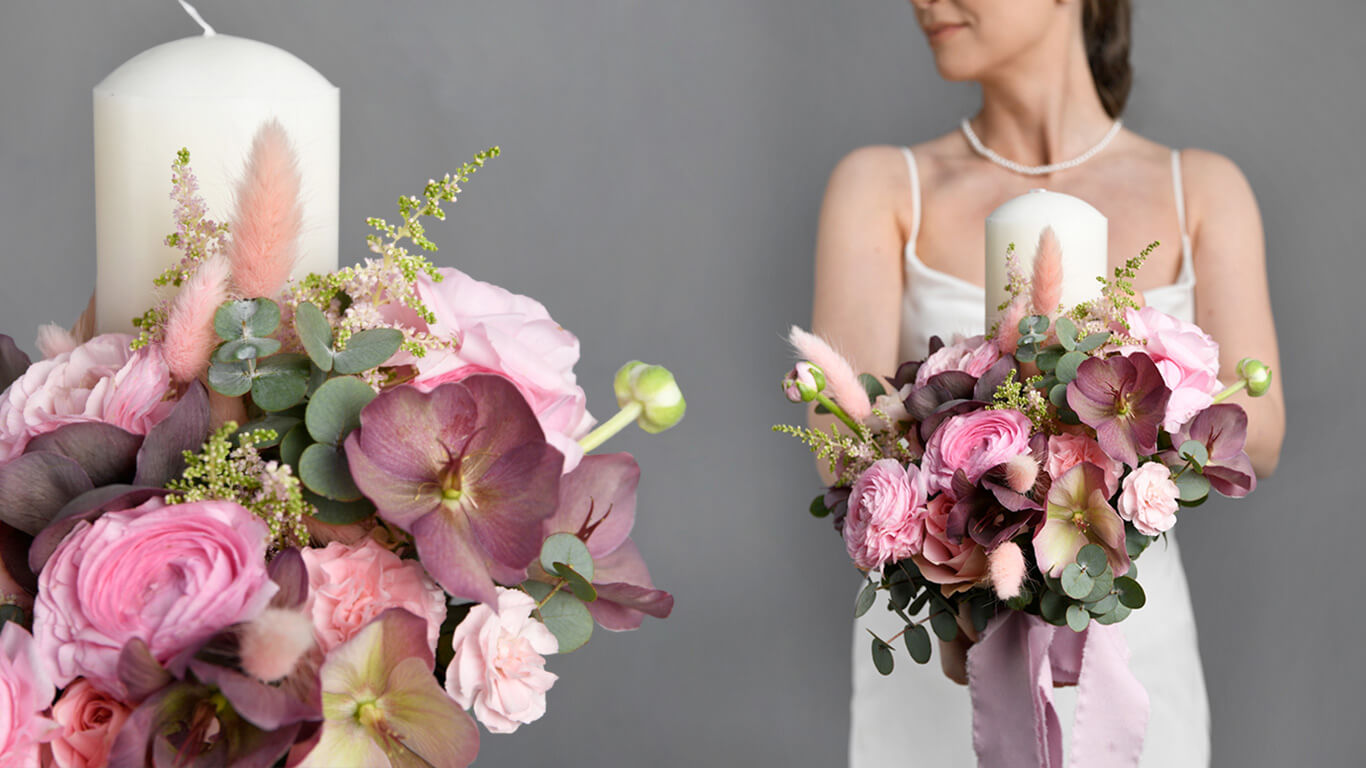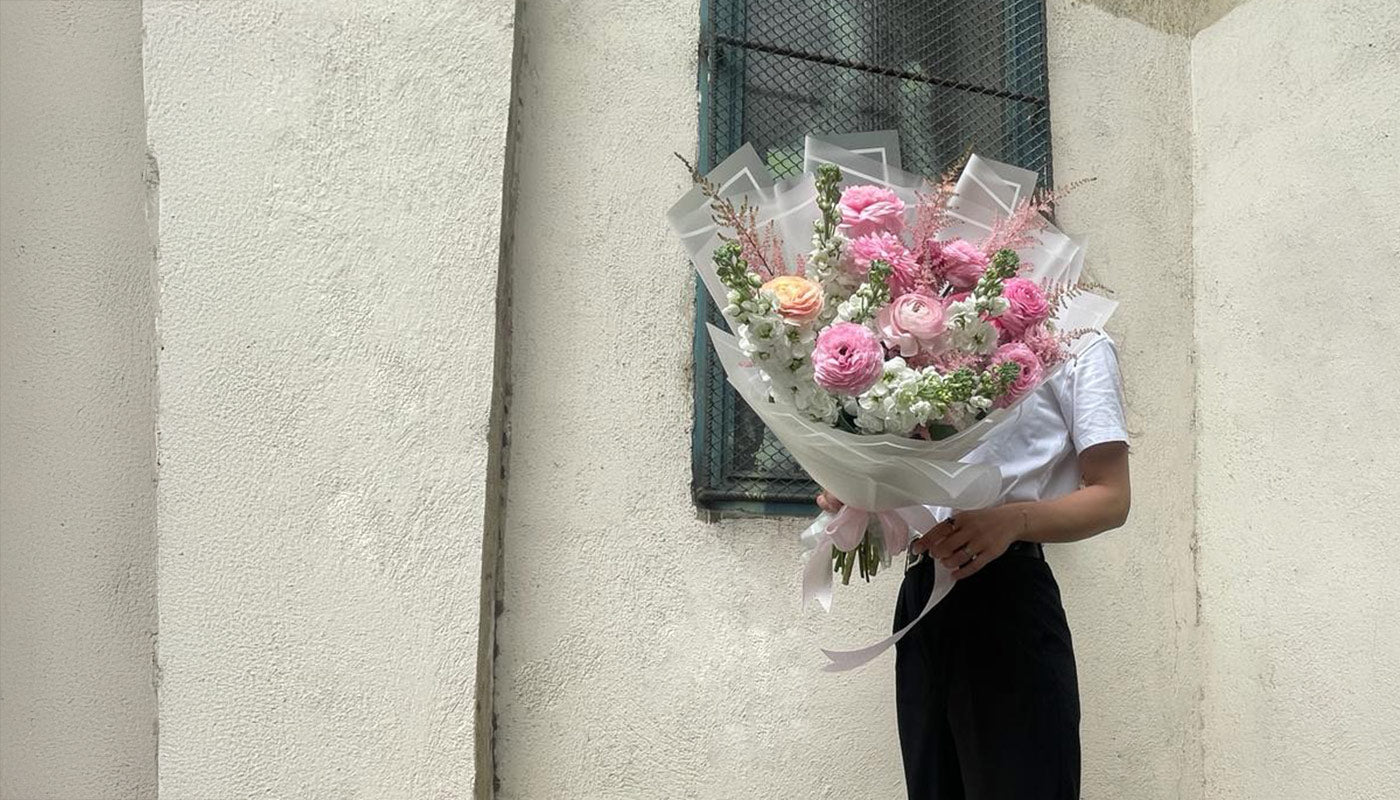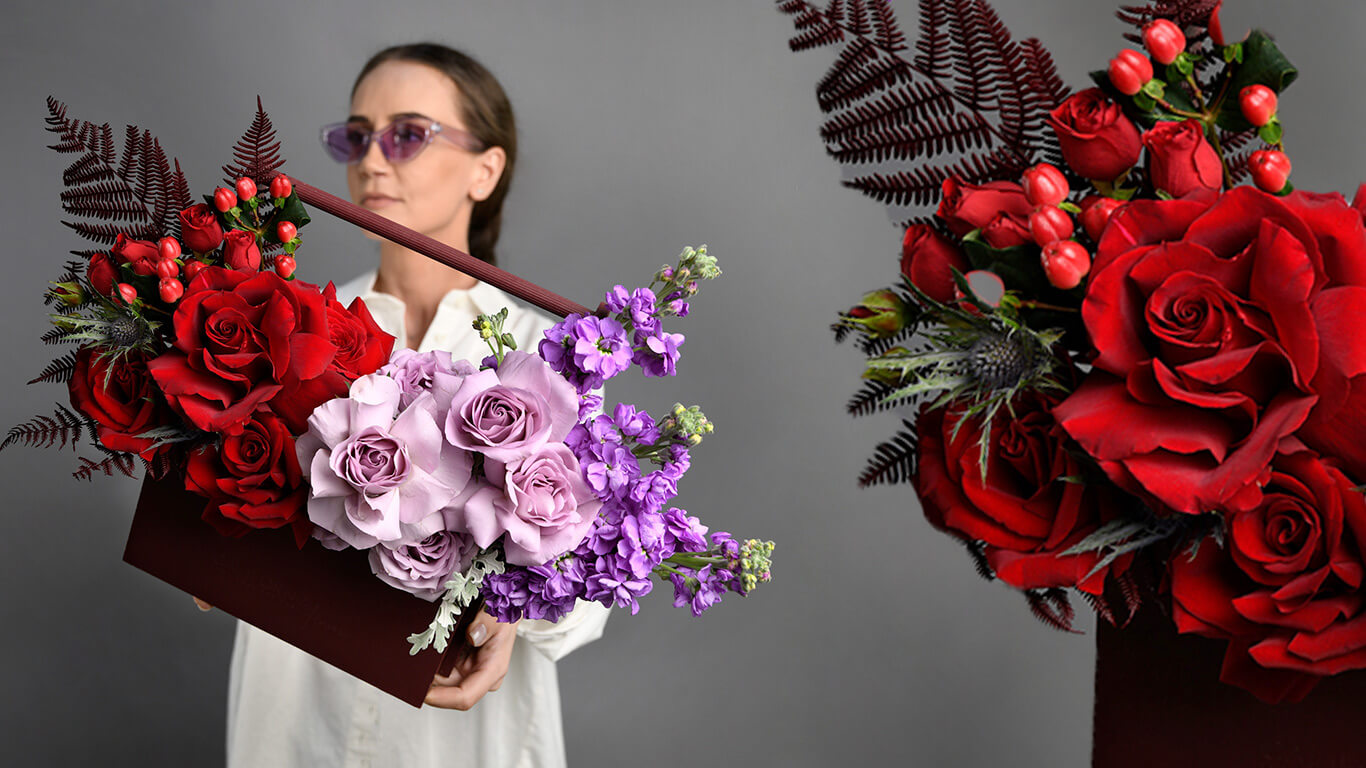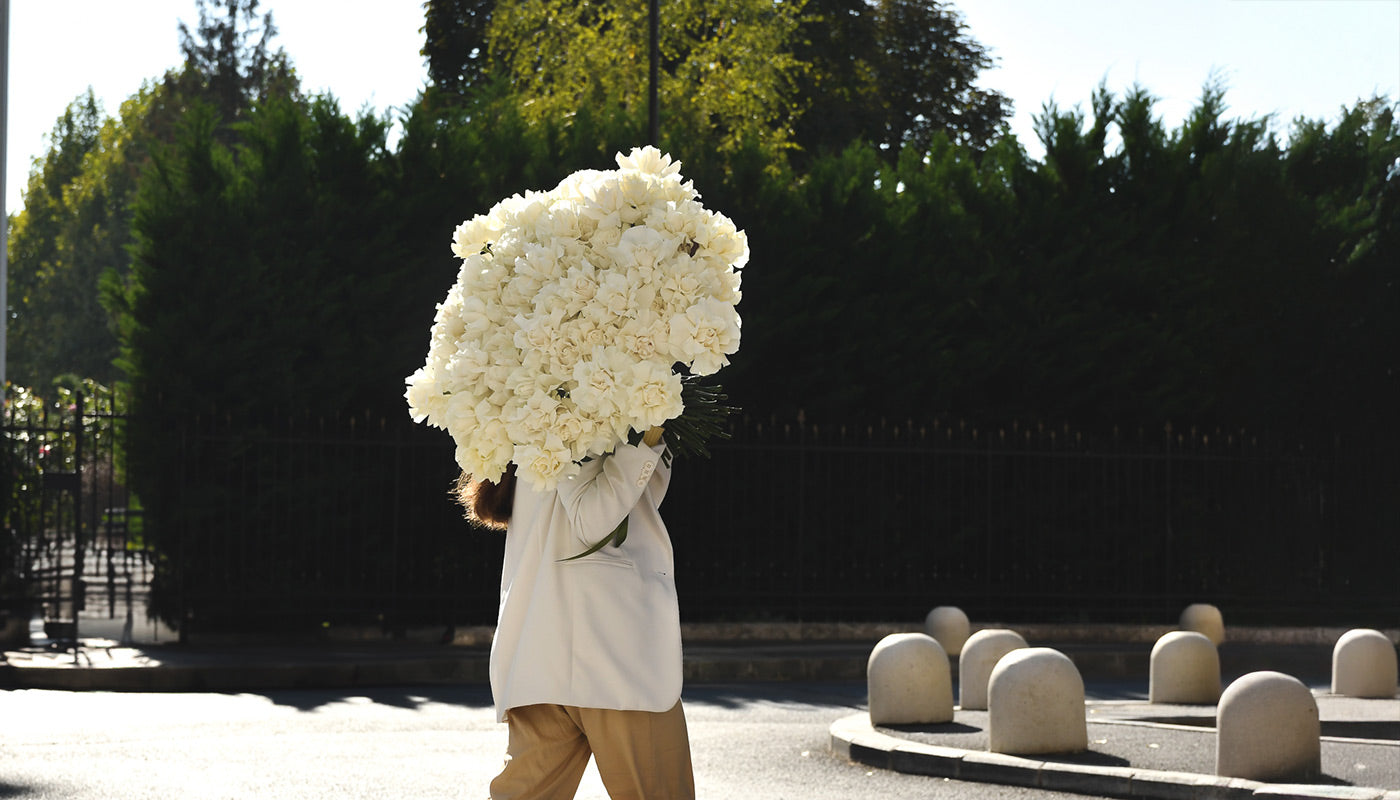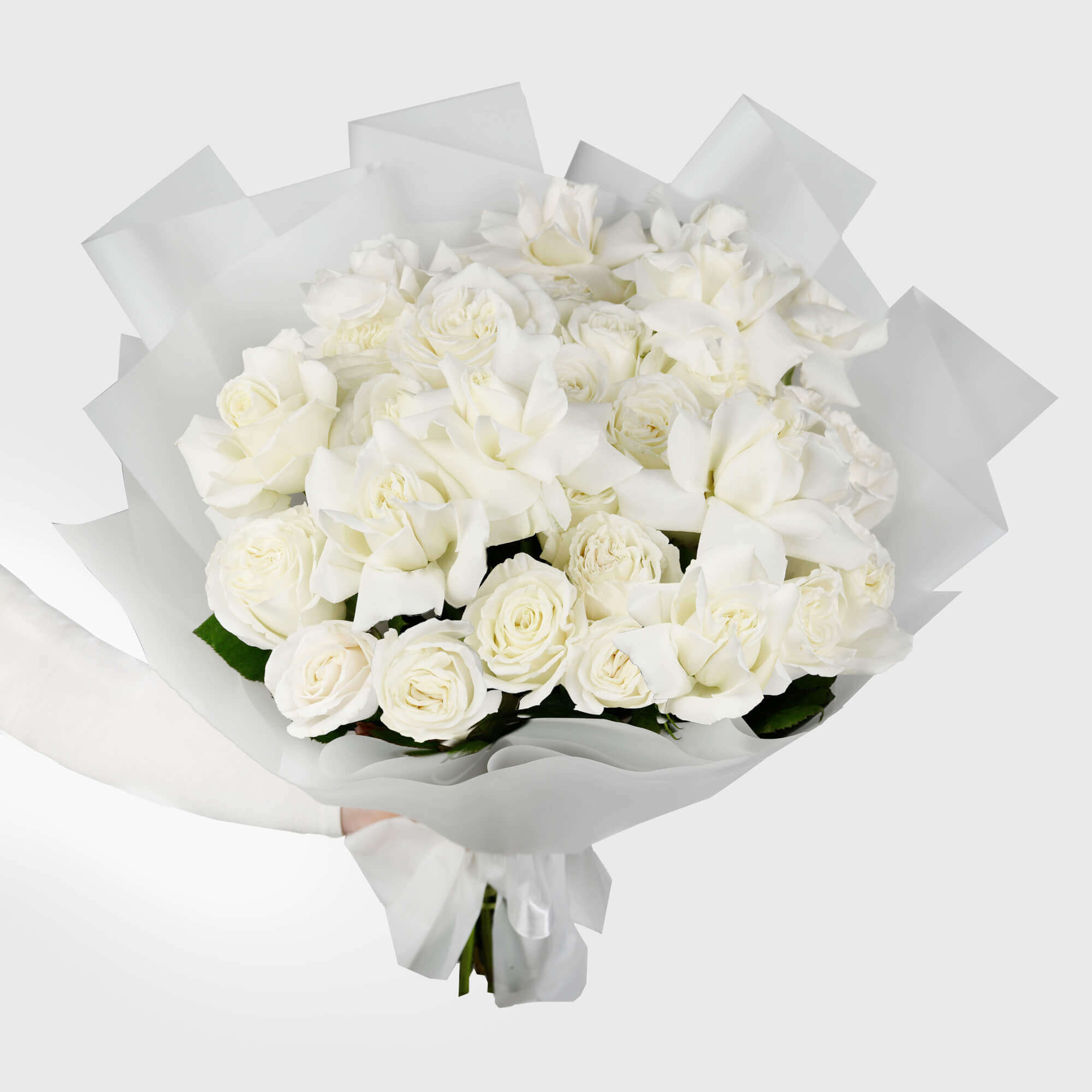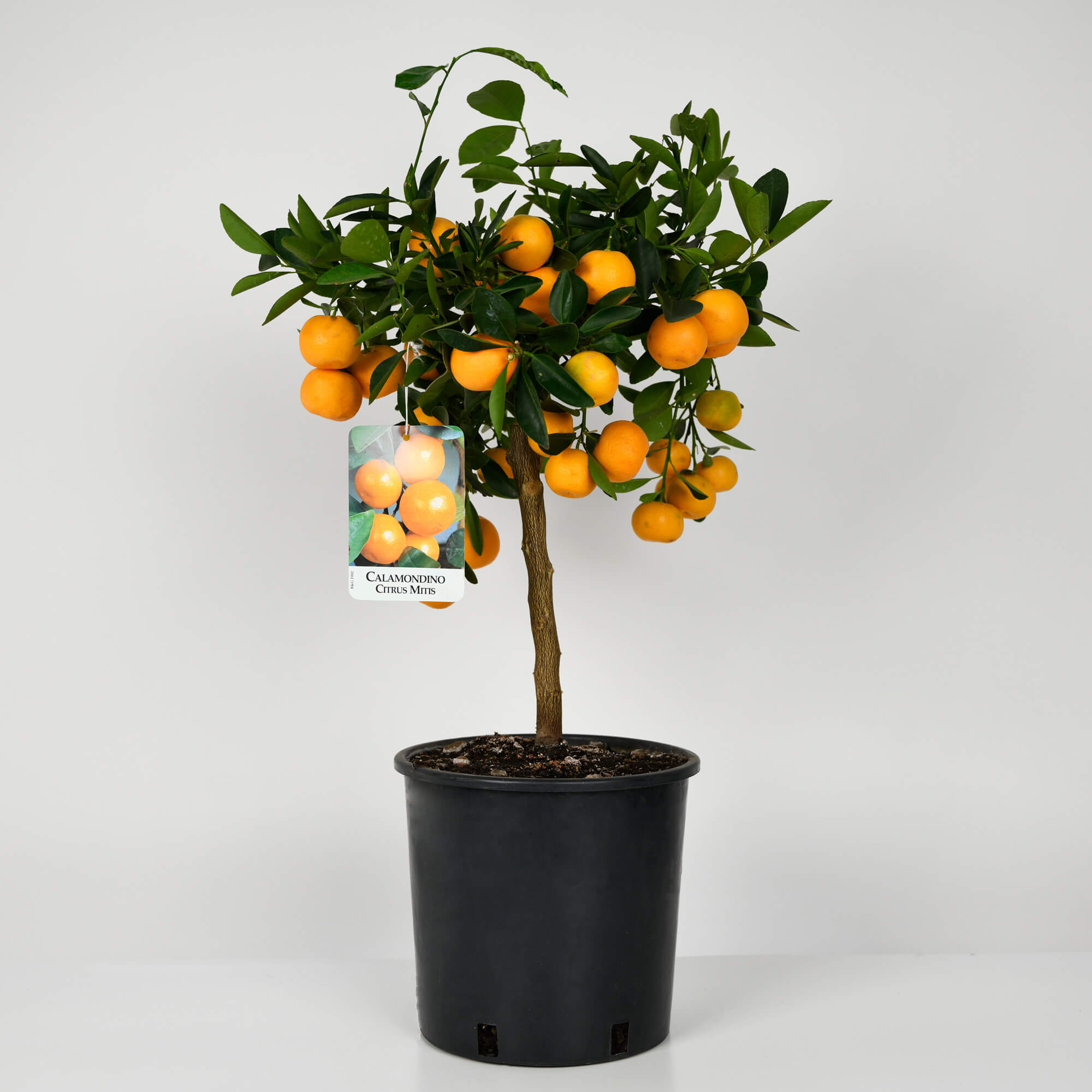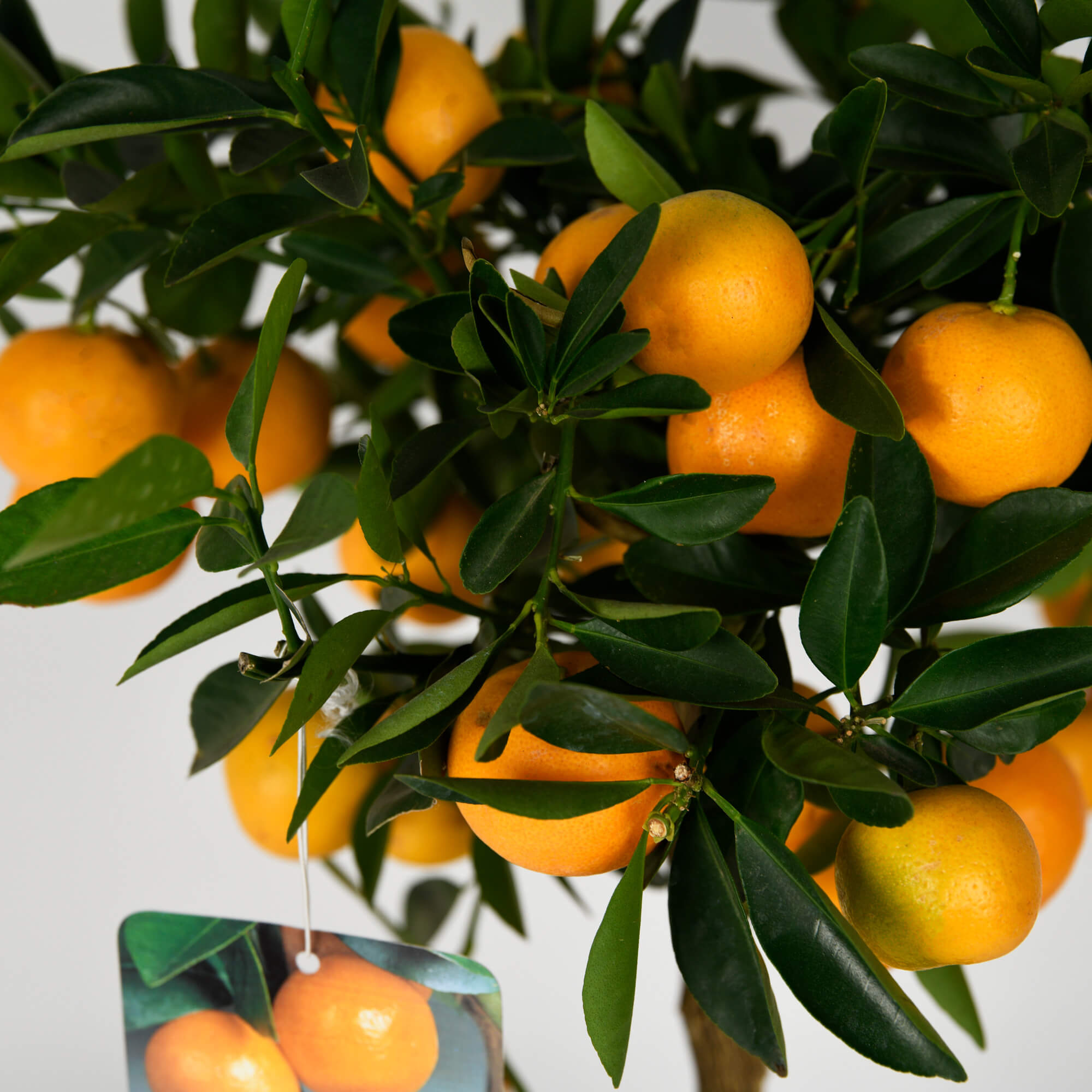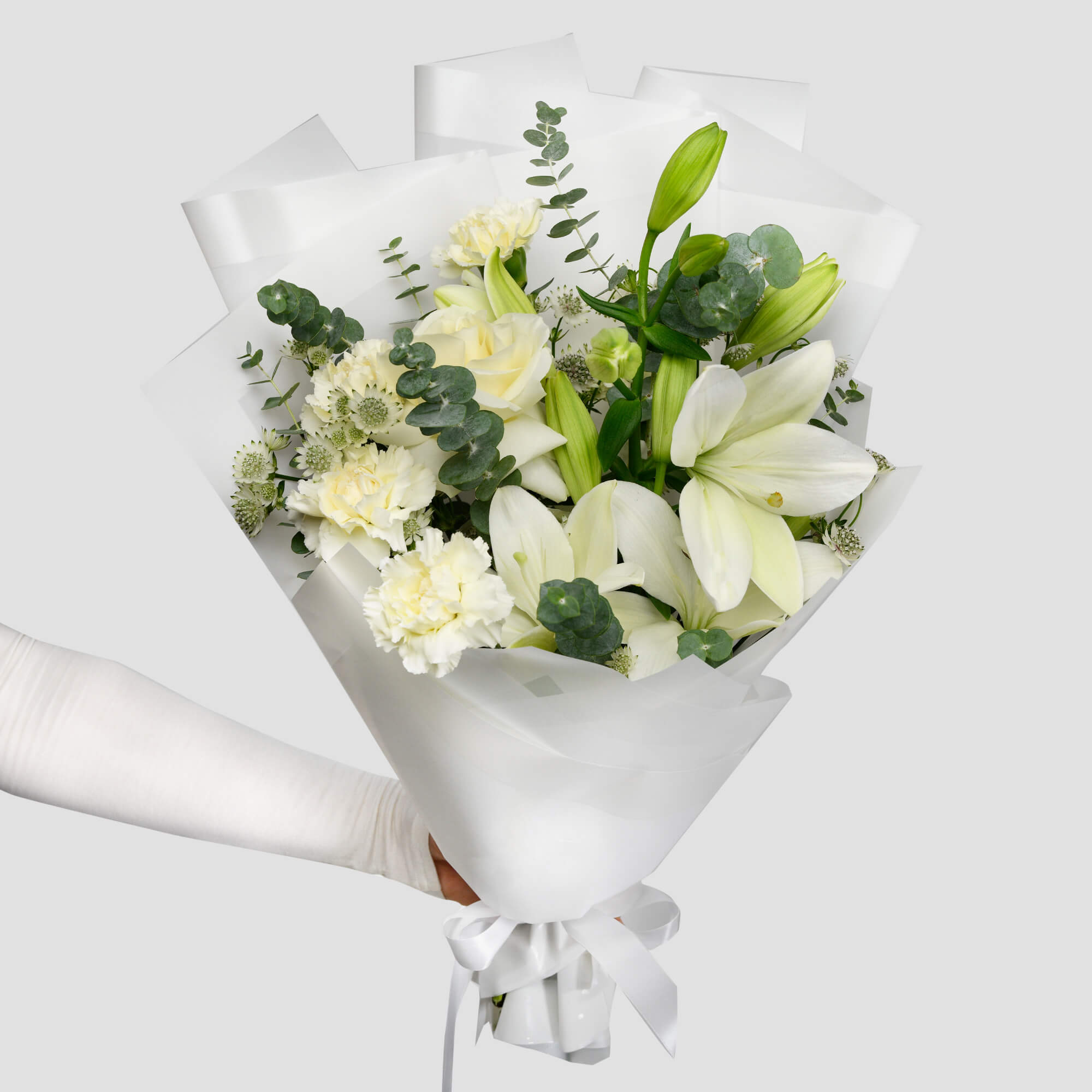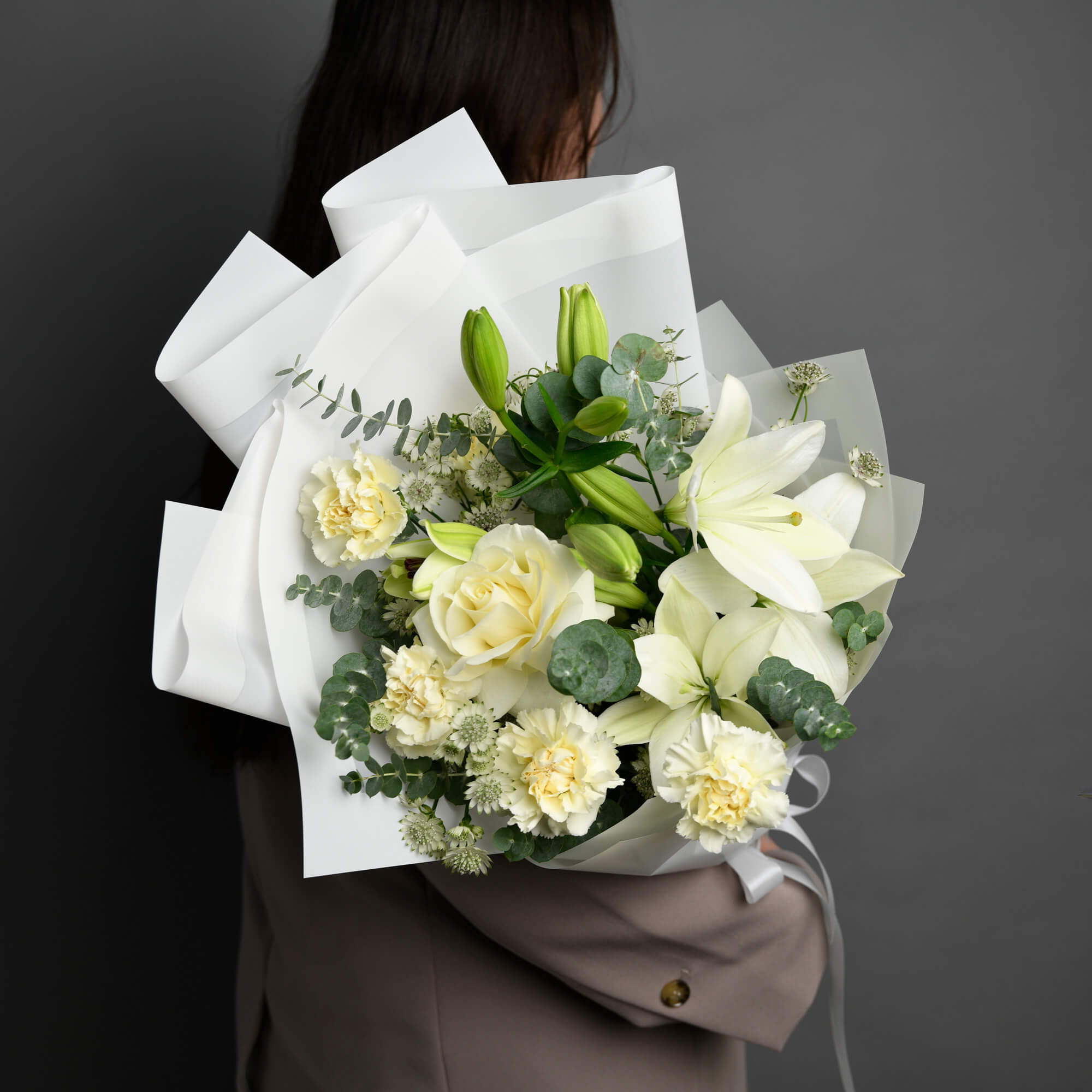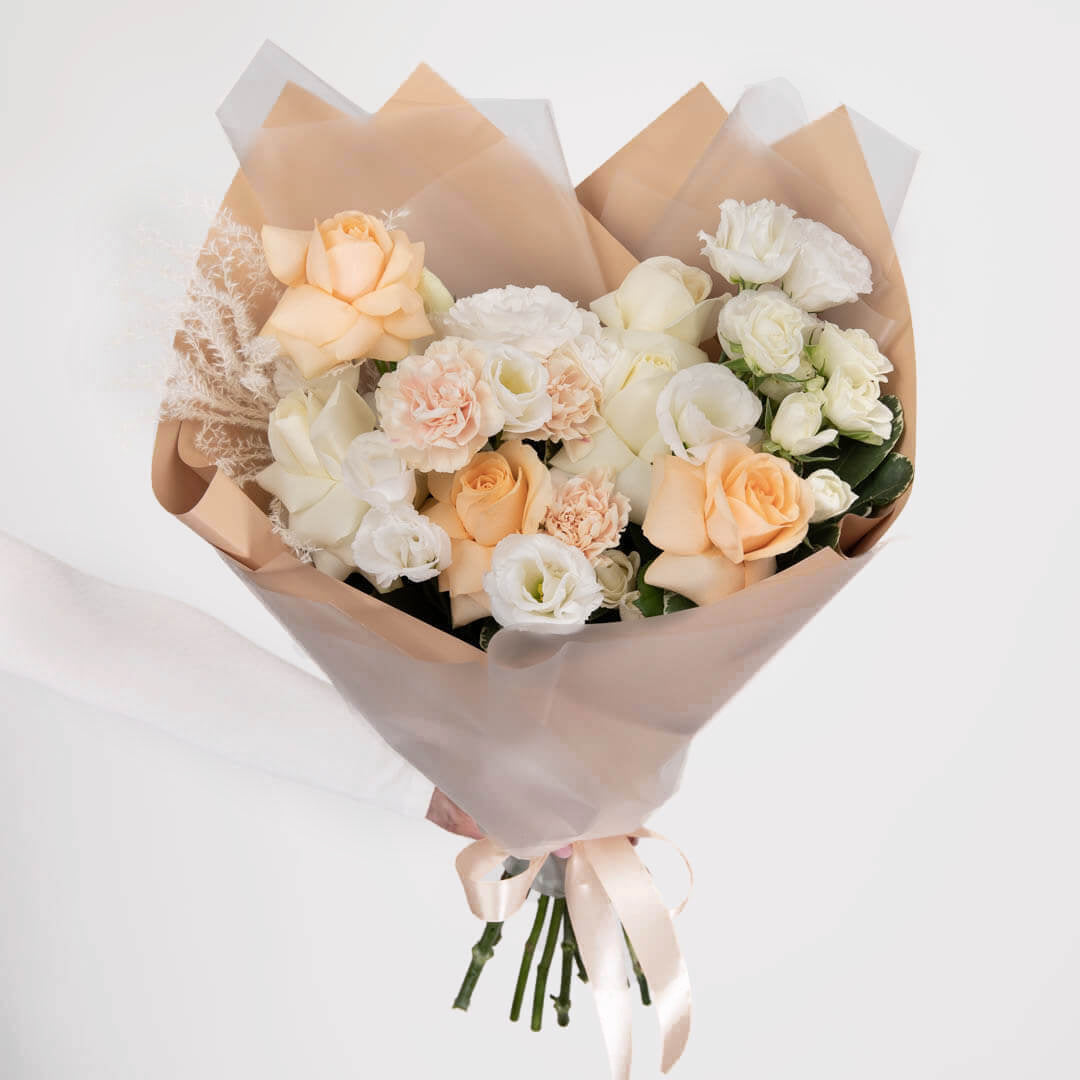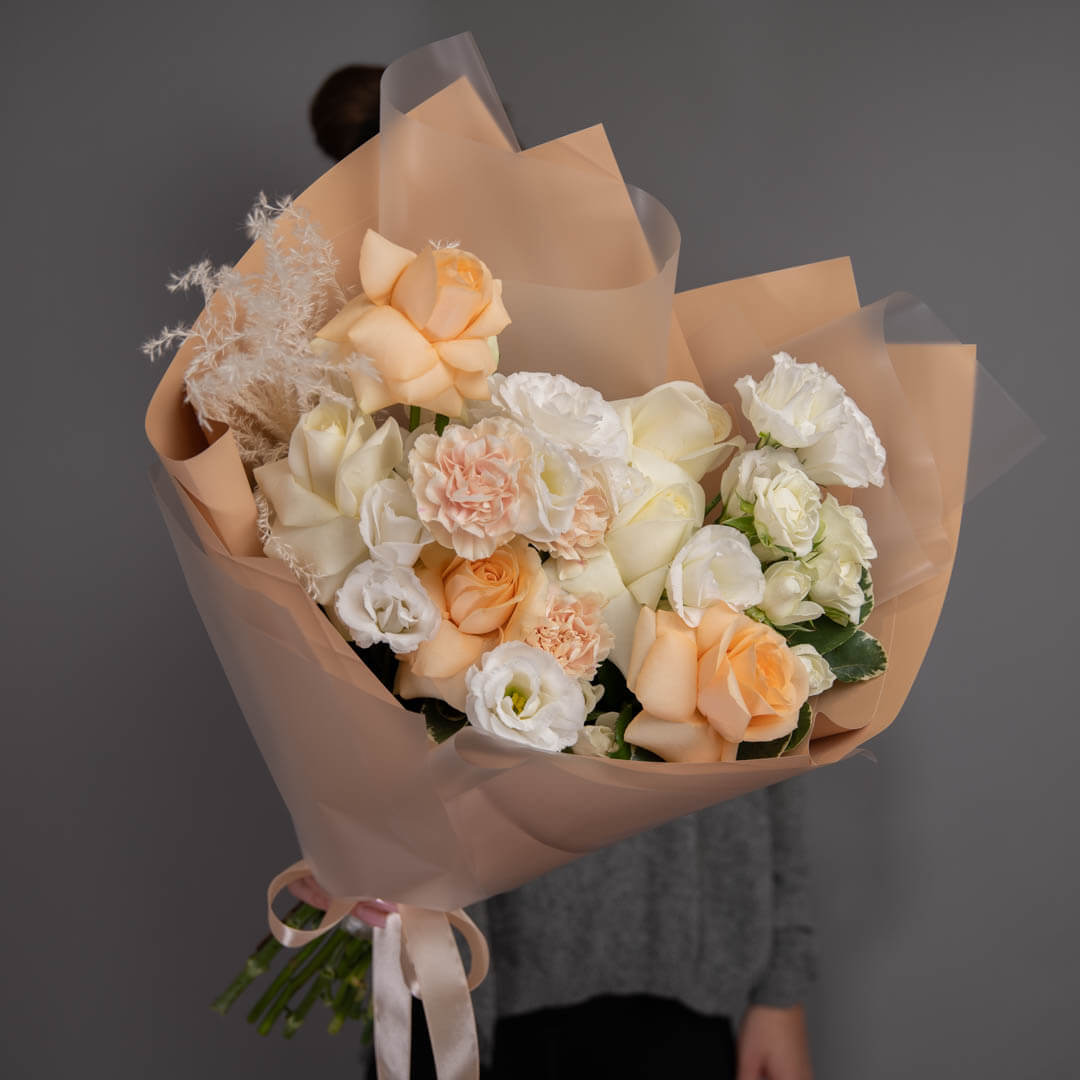Bonsai Meaning - Discover the Feng Shui Symbolism and Benefits of This Japanese Tree
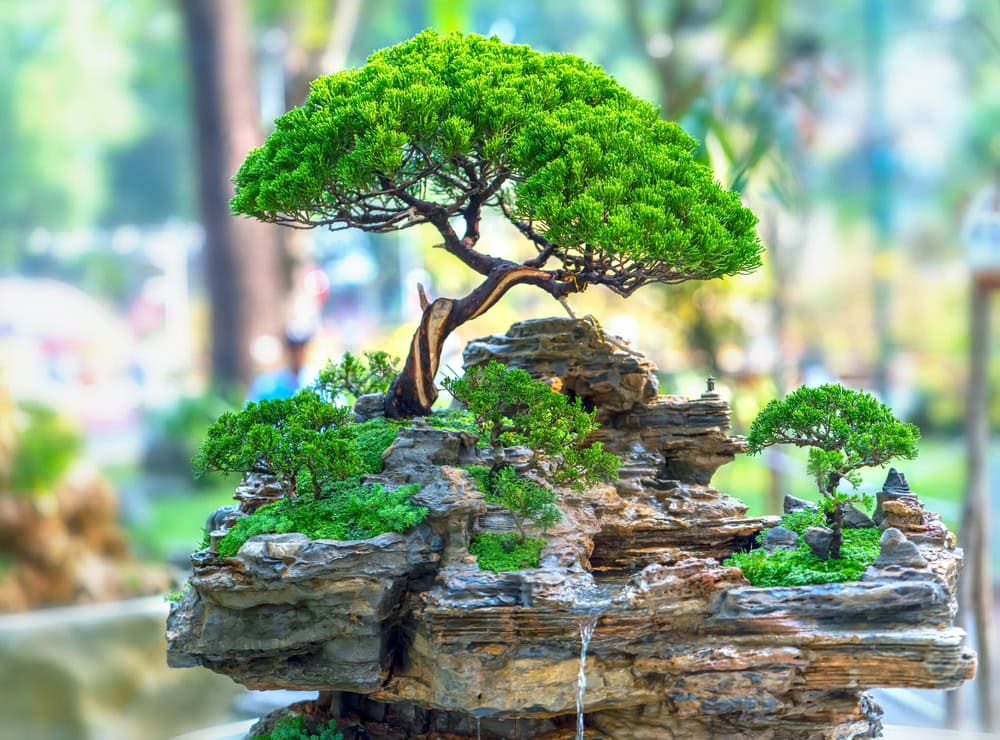
Photo source: Shutterstock.com
Step into the fascinating world of bonsai, where art and nature merge in perfect harmony, creating a mysterious dance of shapes and colors. Each branch, each leaf is an expression of a subtle balance, a reminder of the simple and profound beauty of the natural world. Bonsai is not just a plant; it is a gateway to introspection, a way to reconnect with your inner roots and find peace beyond the turbulent waters of everyday tumult.
So, we invite you to discover how this ancient plant can transform not only your space, but also the way you look at life, bringing with it valuable lessons about patience, balance, and imperfection.
What is a bonsai and what is its origin?
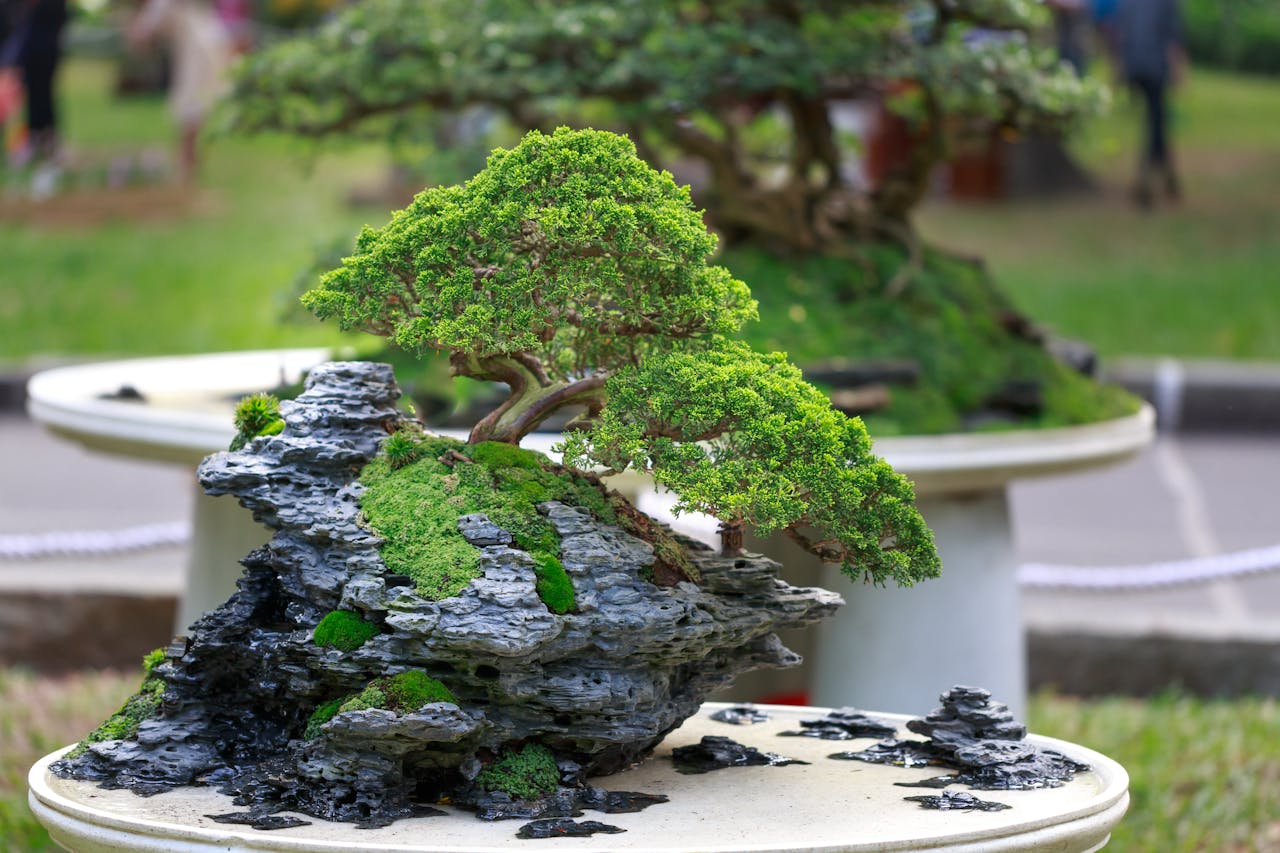
Photo by Quang Nguyen Vinh on Pexels.com
For the Japanese, bonsai represents a miniature world, where nature and art merge in perfect harmony. A small universe, a pure world - this is the very essence of bonsai, an ancient practice that has its roots in distant China. The term "bonsai" comes from Japanese and means "planted in a container". But don't be fooled by the simplicity of the definition, because behind it lies an entire philosophy of life!
The origins of bonsai are lost in the mists of time, over two millennia ago, in ancient China. Here, under the name "penjing", this art began to take shape. Think about how, in those distant times, someone had the ingenious idea of recreating the beauty and grandeur of nature on a reduced scale. It's as if you could hold in the palm of your hand the entire strength and wisdom of a centuries-old tree.
The art of bonsai arrived in Japan in the 6th century, with the spread of Buddhism in the Japanese archipelago. With their patience and attention to detail, the Japanese refined and perfected this practice, transforming it into a distinct art, deeply rooted in their culture.
A Japanese bonsai is not just a small tree, but a miniature representation of the strength and beauty of nature. Each branch and leaf is carefully tended to create the illusion of a mature, weathered tree. Its dimensions can range from a few centimeters to a meter in height, but its visual and emotional impact far exceeds these physical limits.
In traditional Japanese culture, bonsai symbolizes prestige and nobility , a testament to the spiritual and artistic refinement of its owner. Imagine a samurai meditating in front of a bonsai, seeking answers to the profound questions of existence in its harmonious lines.
Today, the art of bonsai has captured hearts and minds around the world. It is not just a form of artistic expression, but a way to connect with nature, a way to bring a touch of harmony and balance into the hectic life of modern man. When you look at a bonsai, you have the opportunity to admire an entire philosophy of life, a lesson in patience, perseverance and the beauty of imperfection.
The significance of bonsai in Japanese culture
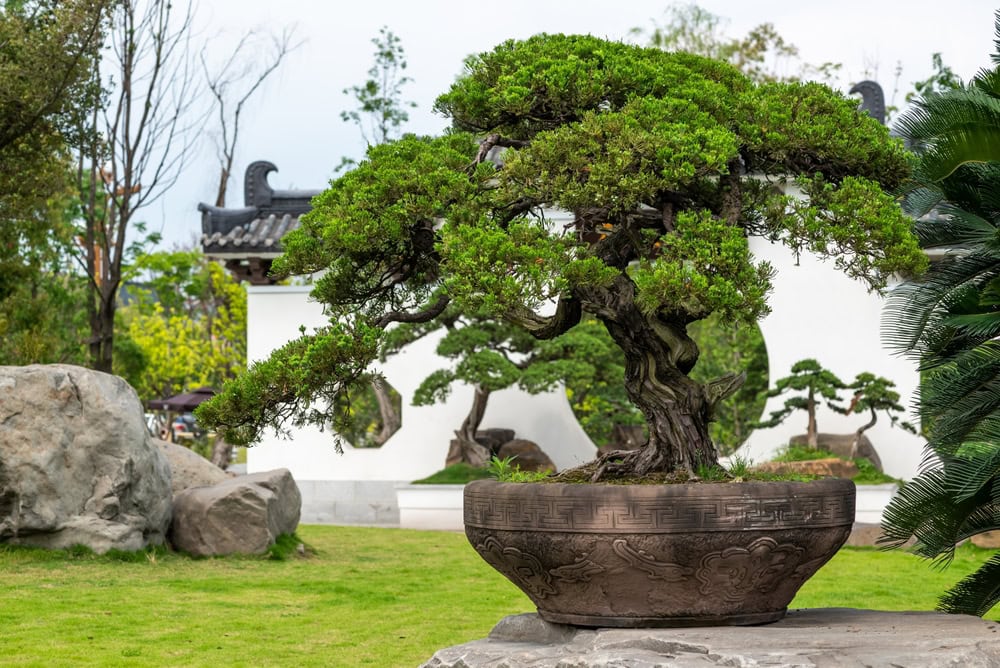
Photo source: Shutterstock.com
Let's enter the fascinating world of Japanese culture, where bonsai occupies a place of honor, much deeper than you might suspect. In this little universe, a bonsai was not just a decorative plant, but a living expression of Japanese philosophy and spirituality.
The concept of wabi-sabi , an aesthetic vision that celebrates the beauty of imperfection and simplicity, is perfectly reflected in the art of bonsai. Every curve of the trunk, every seemingly imperfect branch, contributes to the creation of a unique harmony. When you care for a bonsai, you are not trying to create perfection, but to discover the beauty hidden in imperfection.
For a Zen master, bonsai cultivation is more than just a horticultural activity - it is a form of meditation, a way to train the mind and spirit. Every gesture, whether it is pruning a branch or watering the plant, becomes an act of conscious presence, an opportunity to connect with the rhythms of nature and your own soul.
Bonsai symbolizes the harmony between man and nature in the Japanese tradition. By carefully caring for this miniature tree, you learn to respect and collaborate with the forces of nature, rather than trying to dominate them. It is a lesson in humility and wisdom, an acknowledgement of our place in the great cycle of life.
The perseverance required to grow and shape a bonsai tree reflects virtues valued in Japanese culture. It is a lesson in patience and dedication, essential qualities in Japanese philosophy. Likewise, the longevity of a well-tended bonsai tree symbolizes the wisdom accumulated over time, and its visual balance reflects the ideal of inner harmony to which Japanese culture aspires.
In feudal Japan, bonsai were a symbol of social status and artistic refinement. For example, in the courts of nobles and samurai, these miniature trees were lovingly cared for and considered priceless treasures. Today, this tradition continues, with Japanese bonsai being appreciated around the world as a unique expression of Japanese aesthetics and philosophy.
When you look at a bonsai, you see centuries of tradition and wisdom, an entire philosophy of life condensed into an artistic form. It is an invitation to reflection, to finding the balance between human control and the force of nature, a lesson in the beauty that can be discovered in the smallest details of life.
The meaning of a bonsai gift - What do you convey when you give a bonsai?
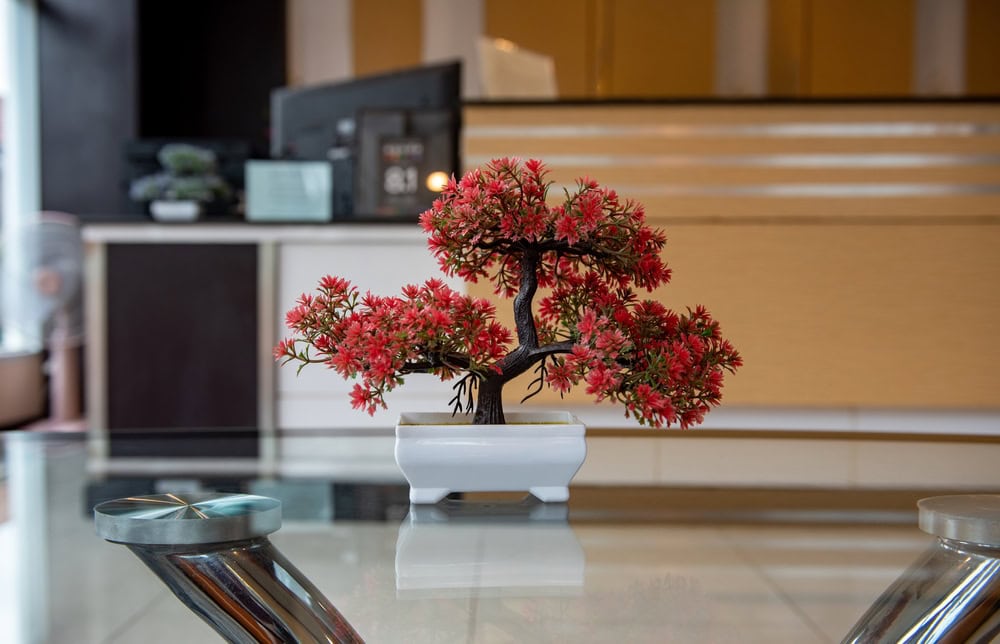
Photo source: Shutterstock.com
Imagine that you have a bonsai in front of you, ready to be given as a gift. What message does this little tree hide, what feelings and thoughts does it convey? When you give a bonsai, you are not just giving a plant, but an entire philosophy of life, a symbol of deep and lasting values.
Think of the long-lasting friendship and deep respect that a bonsai symbolizes. When you give it to someone you love, you convey your desire to cultivate a relationship that will stand the test of time, just as this miniature tree grows and develops over the years. It's as if you're saying, "I want our friendship to be as strong and enduring as this century-old tree, condensed into its miniature form."
The bonsai is also a symbol of harmony and balance. When you give it as a gift, you convey the wish that the person who receives it finds peace and balance in their life. It is as if you are offering a small miniature universe, a source of calm and reflection in the midst of everyday hustle and bustle.
By giving this gift, you encourage the development of patience and perseverance in the life of the recipient. You are saying, in a subtle way, "I believe in your ability to cultivate patience and perseverance, to see the beauty in the slow but sure process of growth and development."
Bonsai also represents a deep connection with nature. In an increasingly urbanized and technological world, giving a bonsai is like bringing a corner of nature into someone's home or office. It is an encouragement to stay connected to the rhythms of nature, even in the midst of the most hectic city.
Think of the longevity and wisdom that a bonsai symbolizes. When you give it as a gift, you are conveying the wish that the person receiving it will enjoy a long and wise life. It's like saying, "I wish you to grow and develop constantly, accumulating wisdom with each passing year."
A bonsai gift is particularly suitable for people who want to develop their spiritual and artistic side. It is perfect for those who live in a stressful environment and need a source of relaxation and contemplation. It is also a wonderful gift for plant and gardening lovers , offering them a unique and satisfying challenge.
So, when you give a bonsai, you give more than just a plant - you give a source of long-term joy and fulfillment. It is a gift that continues to "grow" and bring satisfaction year after year, reflecting the care and attention you put into its selection. It is, in essence, an invitation to a journey of self-discovery and personal growth, condensed into the elegant and meaningful form of a miniature tree.
How is bonsai integrated into Feng Shui principles? - harmonizing energy in the home
Your home is a living organism, in which energy, or chi , constantly circulates. From this perspective, the bonsai becomes a powerful harmonizing element, a focal point that can influence the entire energy flow of your living space. As we explained, in Feng Shui philosophy, this miniature tree is not just a simple decorative plant, but a sophisticated tool for balancing and improving the energy in your home.
Think of bonsai placement as a subtle art. Each spot in your home has a specific meaning and energy in Feng Shui. For example, if you place your bonsai in the left corner of your home or office, you will attract success and prosperity. It's like planting the seeds of abundance right in your own living space. In contrast, the east area is associated with family health and well-being - a bonsai placed here can become a guardian of family harmony.
The shape and appearance of the bonsai also play a crucial role in Feng Shui. For example, a bonsai with round leaves symbolizes harmony and balance, bringing a gentle and calming energy to your space. On the other hand, a miniature conifer can bring a stronger yang energy, stimulating vitality and dynamism. And if you choose a bonsai with flowers , you will attract prosperity and abundance into your life.
The process of caring for a bonsai tree is like a meditative practice. In Feng Shui, this activity is seen as a way to cultivate patience and mindfulness, helping to improve concentration and reduce stress. Every time you trim a branch or water the soil, you are not just doing a gardening task - you are participating in a ritual of harmonizing your own energy with that of the environment.
Bonsai also has the ability to purify the air in your home. Many species, such as the ficus or the jade tree, are known for their ability to filter toxins from the atmosphere. With each breath, the air around you becomes cleaner and fresher, improving not only the quality of your life, but also the flow of positive energy in your home.
In Feng Shui, the feng shui bonsai is seen as a miniaturization of nature, bringing vitality and balance to the living space. It is the essence of an entire forest in your home, condensed into an elegant and meaningful form. Its subtle presence can transform the atmosphere of a room, creating a perfect balance between natural and artificial elements.
Remember, however, to avoid placing your bonsai in a bedroom or bathroom. In these spaces, its active energy can disrupt rest or conflict with the water element. Think of your bonsai as an honored guest in your home - you are giving it the best place, where it can shine and fully manifest its energetic benefits.
Integrating bonsai into your Feng Shui practice is not just about decorating or gardening. It is a way to transform your home into a sanctuary of harmony and balance, a space where energy flows freely and where you can truly feel at home. Every glance at this miniature tree becomes a reminder of your connection to nature and the forces of the universe, right in the middle of modern urban life.
Popular types of bonsai and their meanings
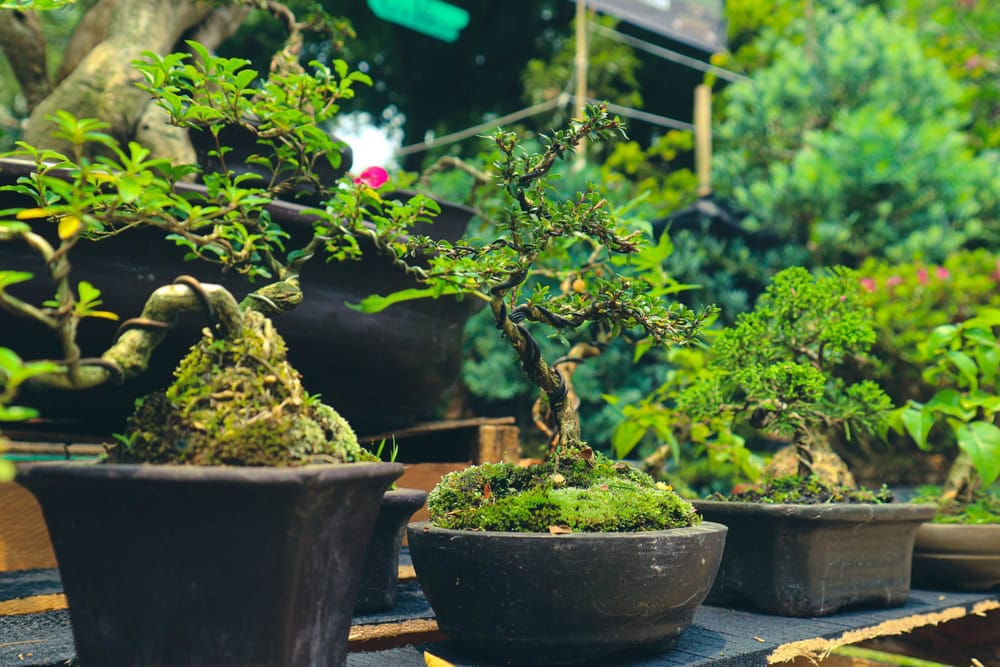
Photo source: Shutterstock.com
A miniature world, populated by trees that preserve their essence and symbolism, condensed into a unique artistic form. This is the fascinating world of bonsai, where each type of tree brings with it a special story and meaning. Let's explore together some of the most popular types of bonsai and discover what messages they hide.
The Ginseng Ficus is a bonsai that exudes vitality and strength. With its expressive roots and rich crown, this miniature tree symbolizes vital energy and the power of regeneration. In Asian culture, it is considered a bringer of luck and prosperity. When you look at a Ficus Ginseng, imagine that you are absorbing its vital energy, that you are connecting to the force of life itself.
Now, let your gaze rest on a Japanese Maple (Acer palmatum) . With its delicate leaves that change color with the seasons, this bonsai is a true work of living art. It symbolizes elegance, grace, and the ability to adapt to change. As you look at a Japanese Maple, think of your own ability to transform and adapt to the different "seasons" of life.
On the other hand, a Pine bonsai has a sturdy trunk and expressive branches. In Japanese culture, the pine is associated with longevity, strength and endurance. It is the tree that remains green even in the harshest winter conditions. When you give or care for a Pine bonsai, you convey a message of perseverance and inner strength.
Zelkova is another popular type of bonsai, prized for its sturdy appearance and elegant branches. This tree symbolizes strength, stability, and adaptability. Think of Zelkova as a wise mentor, reminding you to stay grounded in your core values while adapting to the changes around you.
We can't talk about bonsai without mentioning Ginkgo Biloba , a tree with a history spanning millions of years. In its bonsai form, Ginkgo represents hope and resilience. It is considered a symbol of peace and harmony between man and nature. When you look at a Ginkgo bonsai, imagine connecting to the ancient wisdom of the Earth.
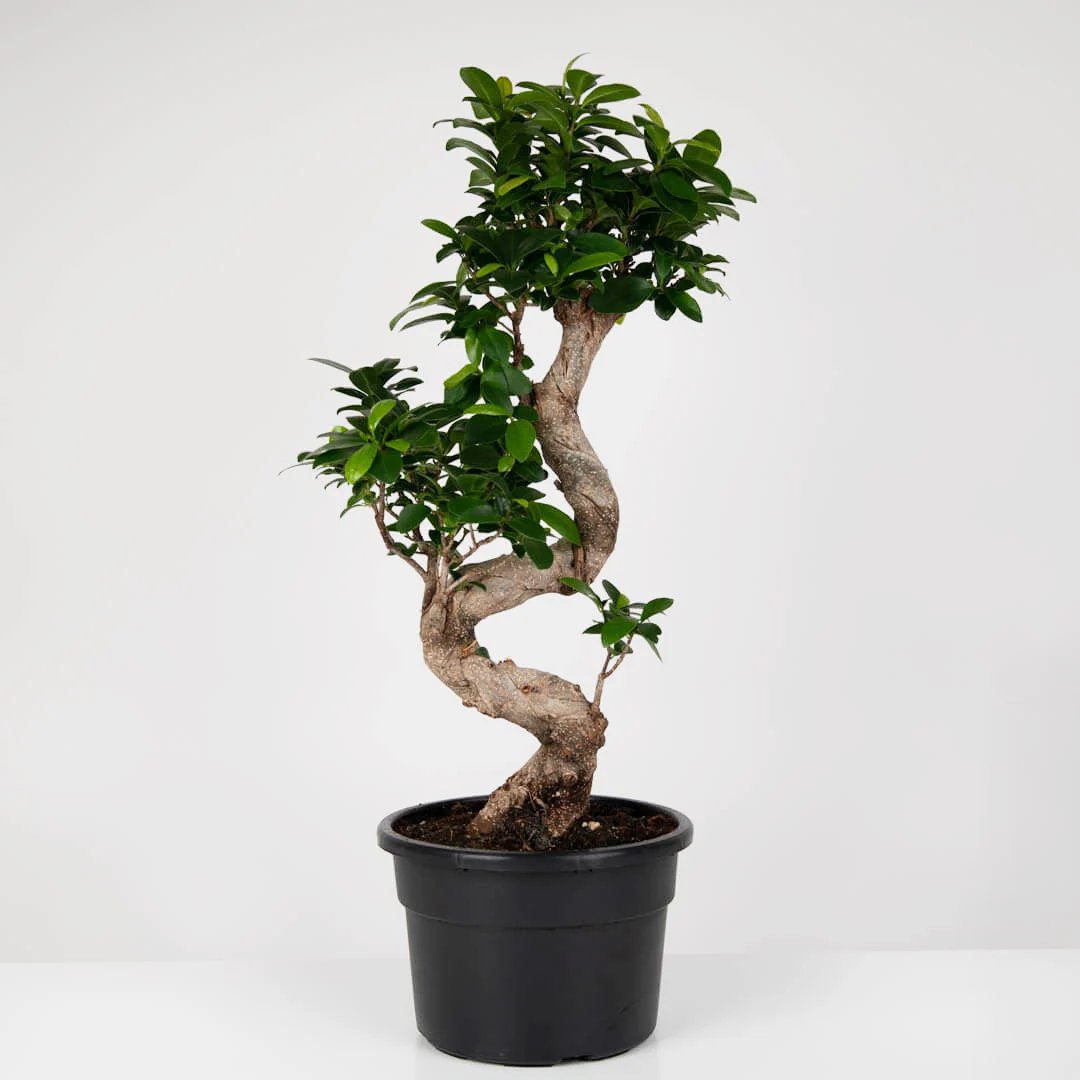
Photo source: Californiaflowers.ro
Each type of bonsai requires specific care and shaping techniques to maintain its desired shape and meaning. When choosing a bonsai, think not only about its visual appearance, but also about the message you want to convey or the energy you want to bring to your space.
In Japanese culture, the bonsai itself, regardless of species, is seen as a miniature representation of nature and the universe. Caring for a bonsai thus becomes a form of meditation, a way to connect with the rhythms of nature and your own inner essence.
Regardless of the type of bonsai you choose, remember that you become the guardian of a living work of art, a small universe that develops under your careful care. Every trimmed branch, every cared for leaf, becomes an expression of your own creativity and your connection to nature. A well-tended bonsai can become not only a source of visual joy, but also a silent companion on your spiritual journey, offering you lessons in patience, perseverance and appreciation of beauty in the smallest details of life.
The relevance and impact of bonsai in modern life
Bonsai teaches us that, despite its small size, there can be great life lessons in every branch and leaf that is carefully shaped, emphasizing inner harmony and appreciation of details.
In an apartment located in the middle of a busy city, a bonsai tree offers you a window to nature, a living connection to the rhythms of the Earth. In the digital age, where you are surrounded by screens and concrete, the presence of this miniature tree becomes an anchor, a constant reminder of the beauty and complexity of the natural world.
Bonsai is not only a decorative element, but also a powerful therapeutic tool. In moments of stress, when you feel the pressure of modern life overwhelming you, the careful care of your bonsai can become a form of active meditation. Every gesture - trimming a branch, watering the soil - brings you to the present, calms your mind and rebalances your inner energy.
In an age of multitasking and instant gratification, bonsai teaches valuable lessons about patience and perseverance. Growing and shaping a bonsai is a slow process, requiring constant attention and long-term dedication. This practice helps you cultivate virtues such as patience and attention to detail, qualities that are increasingly rare and valuable in contemporary society.
In this sense, the impact of bonsai on your work environment is crucial. In a modern office, the presence of a bonsai can completely transform the atmosphere. Not only does it improve air quality, but it also brings an element of calm and natural beauty to a space dominated by technology. Its presence brings a touch of nature right to your desk, constantly reminding you to maintain a balance between work and connection with the natural world.
In the context of increasingly acute ecological concerns, the bonsai tree is becoming a symbol of sustainability and environmental responsibility. Caring for a miniature tree makes you more aware of the fragility and beauty of natural ecosystems, encouraging you to adopt a more responsible attitude towards the environment in all aspects of your life.
Bonsai also plays an important role in education and personal development. Growing these miniature trees can be a rich learning experience, encouraging the study of botany, horticulture, and cultural traditions. For many, it becomes a lifelong passion, stimulating creativity and providing deep long-term satisfaction.
Last but not least, bonsai continues to be an ambassador of Japanese culture around the world. In an era of globalization, these miniature trees facilitate cultural exchange and promote understanding and appreciation of diversity. Through bonsai, you can explore and understand Japanese philosophy and aesthetics more deeply, thus enriching your perspective on the world.
In essence, the bonsai in modern life is not just a decorative plant, but an invitation to a journey of self-discovery and personal growth. It is a constant reminder of your connection to nature, the importance of balance and the beauty that can be found in the smallest details of life. In other words, the bonsai remains a symbol of simplicity, harmony and timeless wisdom.
In conclusion, bonsai transcends its mere existence as an ornamental plant, becoming a powerful symbol of harmony, patience and connection with nature in the modern world. Whether you cultivate it as a hobby, use it in Feng Shui practice or give it as a meaningful gift, bonsai offers you a unique way to bring balance and beauty into your everyday life. By caring for a bonsai, you are not only cultivating a miniature tree, but also your own wisdom and inner peace.
References:
1. Koreshoff, DR (1984). Bonsai: Its Art, Science, History and Philosophy. Timber Press.
2. Chan, CS, & Xiong, Y. (2007). The Features and Values of Japanese Gardens for the Psychological Well-Being of Elderly Women. Journal of Physiological Anthropology, 26(2), 163-169.
3. Tomlinson, H. (2013). The Complete Book of Bonsai: A Practical Guide to Its Art and Cultivation. D.K.
4. Liang, S., & Li, W. (2012). Feng Shui and Chinese Architecture. China Intercontinental Press.
5. Farrell, P. (2014). The Healing Power of Trees: Spiritual Journeys Through the Celtic Tree Calendar. Llewellyn Publications.
Flower delivery Bucharest with home delivery
Flower delivery Brașov for fresh flowers and fast delivery



